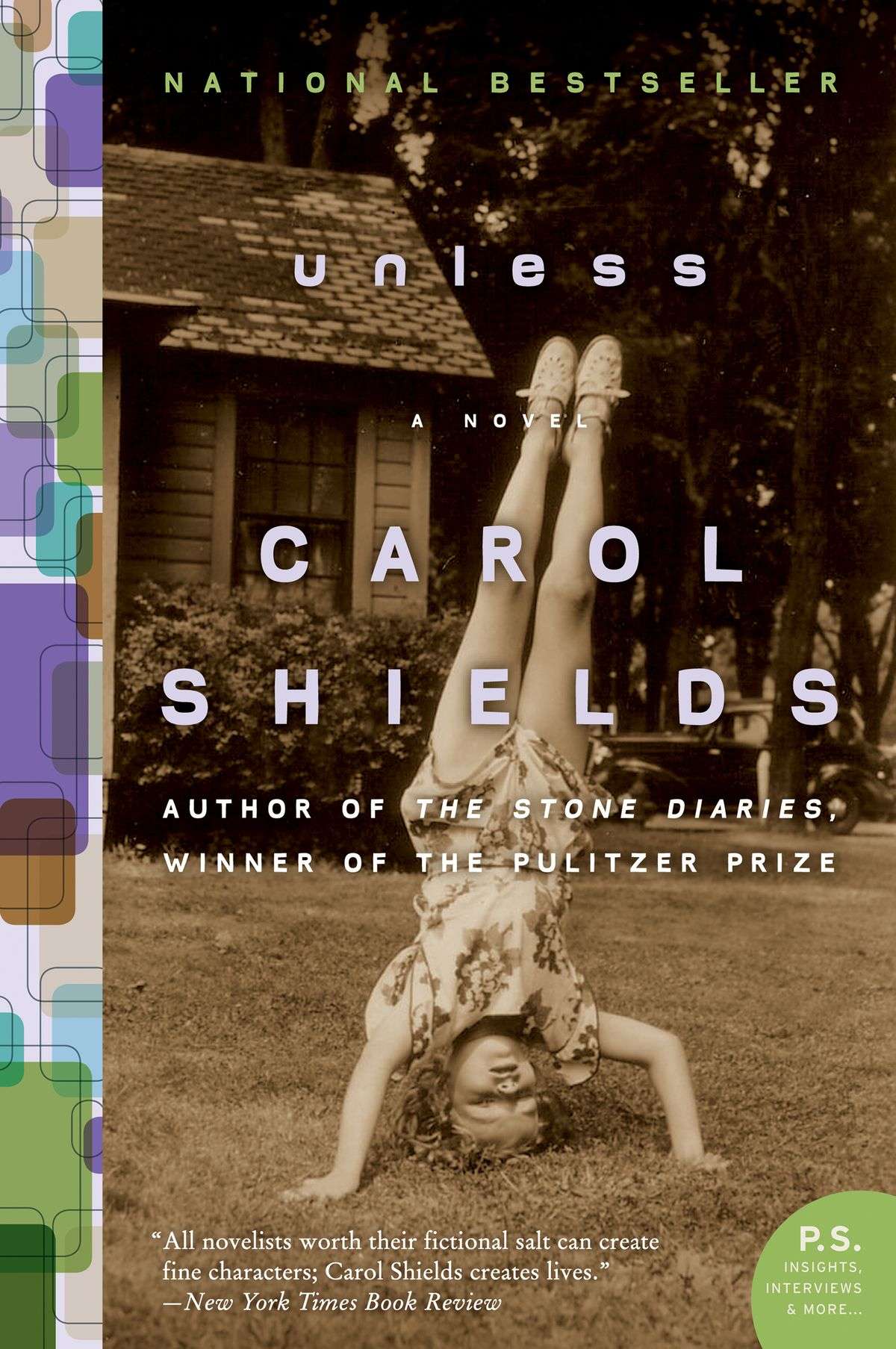Unless, by Carol Shields
I was more than halfway through Carol Shields’ novel Unless before I realized it was not a memoir. I had gone to the internet to learn more about one of the characters – feminist grande dame Danielle Westerman – and discovered that this was not someone who had coasted under my radar, but a fictional creation. I was, frankly, startled. This book had read so much like a memoir – introspective, personal, and yet so full of small, relatable thoughts and actions, that it had not occurred to me that it had been engineered.
Perhaps part of this was due to this book having at its core a mother searching for answers in the wake of a beloved daughter who is living on the streets, not due to addiction or mental instability but by what appears to be a conscious choice. I have in my own experience a daughter who struggles with a mind that wars with itself, and peering into a Reta’s hopes, fears and confusion tethered me to the text.
Reta Winters is a writer; a translator by trade, who has been somewhat surprised by the success of a small, “light” novel she wrote somewhat on a whim, and now is working on its sequel. She lives in a lovely, mortgage free house an hour north of Toronto with a doctor husband whose hobby is the scientific study of trilobites; they both had been young, politically active idealists when they met. They are parents to three teen-aged daughters who are bright, beautiful, healthy and loved.
That is, until the eldest, Norah, inexplicably drops out of university and leaves her boyfriend to live on the streets of Toronto. One street in particular, one corner, one pane of pavement. She simply sits there day after day, unfocused, mostly non-communicative, with the word GOODNESS written on a cardboard sign that she wears around her neck. If anyone does give her anything, she in turn gives it away to others who live on the streets. She sleeps at a hostel for the homeless. It’s not that she refuses to go home, she simply doesn’t acknowledge that she has a home to return to.
So Reta, her mother, struggles with knowing how to respond to this beloved child who asks for nothing, accepts nothing, desires nothing. Reta continues to write, using her writing as an outlet and a refuge. She continues to meet friends for their weekly coffee ritual, and with the formidable feminist Danielle Westerman. She also writes letters of varying degrees of wit and anger to male authors who seem oblivious to women in the field (although she rarely sends the letters).
And we get to listen to her internal monolog. It could at times be mistaken for being trifling, or as light as the novel she has penned, but at its core is something much weightier, not hidden so much as uncovered. This isn’t merely a story of a mother struggling with a child who has fallen away, but also of a woman struggling with being minimalized by other, mostly male counterparts, and one who struggles with recognizing her own value, both as a writer, and as a wife and mother. Because the struggle is not flamboyant or full of angst, Carol Shields is able to reflect it in small, intimate ways, and its voice is louder in doing so, for we can feel it echoed in our own experiences and sensibilities.
Although this book was written in 2002 (also a revelation to me), it still feels incredibly relevant. It was Carol Shield’s final novel, published a year prior to her death. I’m sorry I didn’t get to experience her works when she was alive. But Unless definitely resonated with me; even after realizing it wasn’t a memoir, it still feels as powerful and as authentic as a life truly lived.
– Sharon Browning

